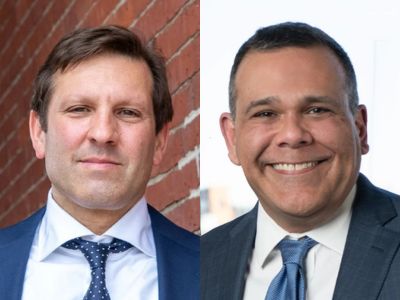Up-level the Client Experience with John Grant
Why you need to understand the client experience and drivers of value to your client.
Description
This week, Melissa is sitting down with founder of Agile Attorney Consulting, John Grant. John has a proven record as a legal innovator who helps legal teams optimize their workflows, strategies, and systems to get the most of the people and tools they’ve already invested in through the lens of modern tools and methods.
As a fourth generation lawyer, John has an instinctive understanding of what is important for efficiency, streamlining, optimization, and client happiness. The tools he learned during his decade in the tech industry have shaped his mission of helping lawyers improve what they do, and he’s here to share his insights on how we can apply those principles in the real world.
Listen in this week as Melissa and John dive into the importance of looking at your practice through the lens of your client and their experience. You’ll hear why doing this inherently forces better quality legal work, how he’s navigated shifting to a client-first approach in his business, and how unbundling your business internally has the potential to help you up-level client satisfaction.
If you're a law firm owner who's thirsty for figuring out exactly what you're aiming for and making a really well thought out, deliberate strategic plan to get there, and then having accountability and coaching along the way so that you can really honor your plans, then join us in Mastery Group.
What You’ll Discover:
• What the Kanban board entails.
• The value of divorcing your business model from the act of examining the components of your delivery pipeline.
• What happens if you solely focus on expanding your skillset and knowledge base without considering client experience.
• The key to profitability.
• Why you need to understand the client experience and drivers of value to your client.
• How Agile had to come up with different ways of thinking and delivering their work.
Featured on the Show:
• Create space, mindset, and concrete plans for growth. Start here: Velocity Work Monday Map.
• Join Mastery Group
• Join the waitlist for our next Monday Map Accelerator, a 5-day virtual deep-dive event.
• Clio
• Predictably Irrational by Dan Ariely
Enjoy the Show?
Leave me a review in Apple Podcasts or anywhere else you listen!
Transcript
Latest pods

What You Need to Know Before Selling Your Law Firm with Michael DiGennaro
Michael DiGennaro shares what law firm owners need to know before selling their practice.

Hyperfocus That Holds: How to Stay on Track with Your Goals
Practical ways to build hyperfocus, honor your plan, and stay locked in until the result is real.

Strategic Planning and Leadership for Law Firm Success with Ben Gideon and Jeff Wright
Learn how clear priorities, accountability, and leadership decisions support execution in a growing law firm.

How Vision, Goals, and Team Drove Law Firm Growth with Taylor Asen and Meryl Poulin
Taylor Asen and Meryl Poulin share how goal setting, leadership decisions, and shared direction supported their firm’s growth.

The Biggest Tax Myths Lawyers Believe with Megan Robin (Part 2)
Tax attorney Megan Robin shares more common tax myths lawyers believe and what actually matters.

Tax Myths Law Firm Owners Believe with Megan Robin
Tax attorney Megan Robin breaks down common tax myths and real strategies for law firm owners.
Join like-minded law firm owners
Transform your firm, starting today
Velocity Work is a business consultancy exclusively focused on law firm owners. We specialize in strategic planning, operational clarity, and performance accountability.
Our initial consult call is free, empowering and zero-pressure.



























